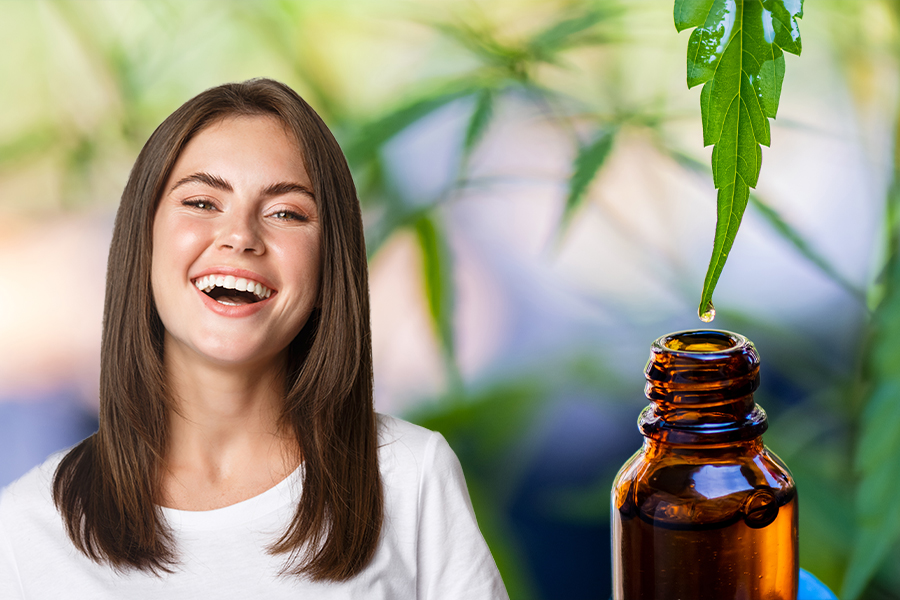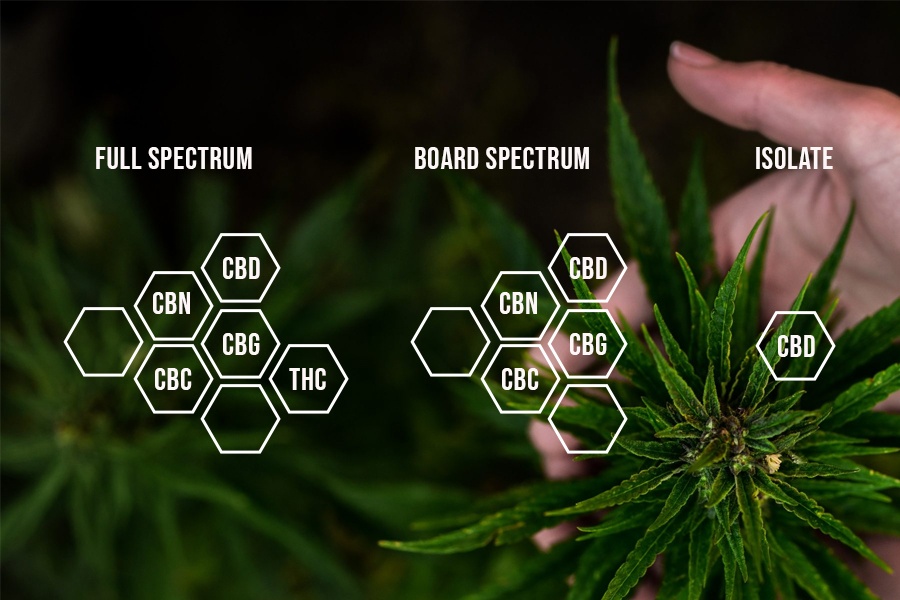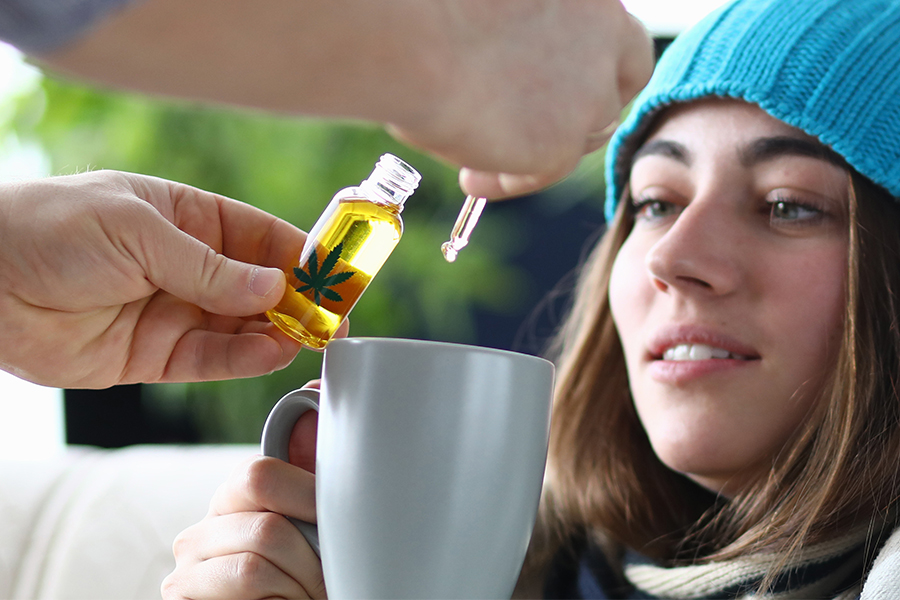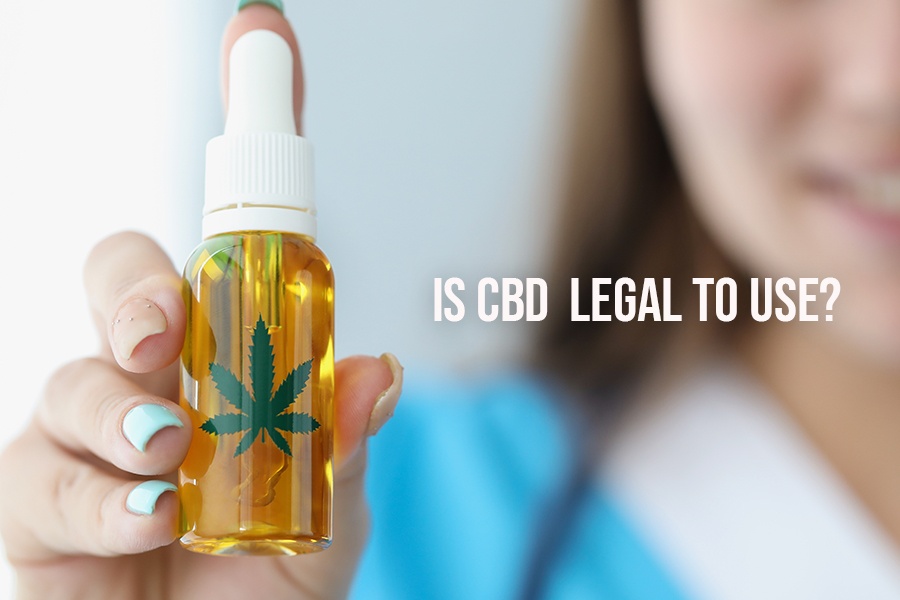CBD’s health benefits are no secret. But why do people hesitate to incorporate this natural supplement into their life for improved balance? Ask someone contemplating the purchase of CBD oil, and they’ll ask you one question – does CBD oil get you high?
CBD products contain hemp extracts usually laced with various plant compounds like cannabinoids, flavonoids, and terpenes. CBD is one of these compounds – and the good news is, it doesn’t get you “high.”
The plant compound that makes people high is THC, which is only present in a negligible amount (0.3%) in CBD oil – or not present at all. So there is no chance of experiencing feelings of high, intoxication, or paranoia when you take CBD oil.
Is CBD Psychoactive?
First, let’s understand what “psychoactive” means. A psychoactive ingredient, usually a drug, affects and alters our minds. It is the feeling that we commonly describe as “getting high.” It can result in having powerful emotions and feelings – and even feel paranoia.
CBD is an ingredient derived from hemp or marijuana plants. But, since marijuana is illegal in the US, CBD products only contain hemp plant extracts. CBD or cannabidiol is considered a non-psychoactive ingredient as it doesn’t cause “high” or paranoia.
However, technically, CBD can be called psychoactive as it can have the power to affect your mood. It can alleviate anxiety, stress, and depression. It can even reduce the psychotic, euphoric, or sedative effects of THC, a psychoactive hemp plant compound.
Difference Between CBD and THC
CBD is a chemical extracted from cannabis Sativa plants. It is one of the 80-100 cannabinoids found in the plant. It is an essential ingredient in natural health supplements that help control the symptoms of various physical and mental health conditions.
Preliminary studies and anecdotes by people using CBD suggest that this compound can alleviate pain, inflammation, anxiety, sleep disorders, seizure disorders, etc. Further studies are required to prove CBD’s medical properties and how they can be consumed.
On the other hand, THC is the primary constituent of cannabis and is a psychoactive chemical compound. THC is also a cannabinoid, and it affects the brain and alters your mood to the extent that you experience the feeling of “high,” i.e., euphoria and paranoia.
It is to be noted that the usage of THC is not legal in the US. The amount of THC in CBD products must be less than 0.3%. Only then can the products be considered legal. As a result, when you consume these products, you will not experience the feeling of “high.”
Both cannabidiol (CBD) and delta-9-tetrahydrocannabinol (THC) can be derived from marijuana and hemp, though the CBD products in the US contain only hemp plant extracts. Both these compounds interact with the cannabinoid receptors in our body.
They can alleviate the symptoms of certain health conditions, affect our sleep cycle and appetite, and change our mood. However, the way they interact with the body and affect us is quite different. THC binds with CB1 receptors to cause psychoactive effects.
On the other hand, CBD binds weakly with cannabinoid receptors, which is why it does not cause psychoactive effects. It does, however, stimulate the endocannabinoid system of the body and brings balance to the functions of your physical and mental health.
Types of CBD Products
Ever since the legalization of CBD in the US, a large number of brands have started producing high-quality CBD products. Let’s take a quick look.
Oil and Tinctures
One of the most popular CBD products is in the form of oil. Oil tincture is administered sublingually, i.e., a few drops are placed under the tongue so that it enters your system quickly. Some of the best CBD oil tincture varieties can also be mixed with food or drinks.
Edibles
CBD also comes in the form of edibles like candies, cookies, and more. Some brands also formulate CBD-infused honey, chocolate, and other edibles. They can come in different shapes, sizes, forms, and flavors, and the CBD content gets digested.
Vaping
CBD also comes in the form of vaping oil. You can smoke it using a vaping device so that it enters your lungs and circulates in your body. The impact of CBD is quite fast when you smoke it. It comes in the form of vape pens, cartridges, etc.
Pills and Capsules
Many manufacturers sell CBD in the form of pills and capsules. The dosage of CBD is pre-measured and consistent in these, and you can take them. You have to take these like you would consume any other medicine, and the ingredients get broken down in the digestive tract.
Apart from oral administration, it is also possible to apply CBD topically in the form of cream, serum, oil, etc. Irrespective of the form in which you use CBD, you should ensure that you buy only from trusted brands and take a look at the third-party lab test reports.
Does CBD Oil Get You High?
People planning to start using CBD have one question: does CBD oil get you high? The answer is a simple and resounding “no.” CBD is a cannabinoid extracted from hemp and cannabis plants. But in the US, CBD products have only hemp oil, with less than 0.3% THC.
CBD affects the endocannabinoid system’s functions and brings a healthy balance to your body and mind. It does so without causing euphoria or paranoia. In fact, CBD can mitigate such feelings of “high.” It can calm you and lift your mood during stress and dejection.
When using a CBD-infused product with various hemp compounds, you can experience their combined impact called the entourage effect. They contain THC in such low amounts that you won’t experience psychotropic effects, though you’ll feel its calming effects.
Effects and Health Benefits of CBD Oil
CBD has become the subject of research to find its medical effects. The studies are still in their preliminary stages, and they show that CBD has many potential health effects on the body and mind. It is known to control a variety of conditions like –
- Depression
- Anxiety
- Schizophrenia
- Chronic Pain
- Psychosis
- Parkinson’s
- Multiple Sclerosis
- Huntington’s Disease
- Lennox-Gastaut Syndrome
- Dravet Syndrome
- Alzheimer’s
- Diabetes
- Crohn’s Disease
- Inflammatory Bowel
Anecdotes suggest that it is effective in dementia, neurodegenerative diseases, skin infections, inflammatory conditions, cardiovascular issues, obesity, sleeplessness, and more. Further studies are required to establish the health benefits of CBD oil.
Does CBD Oil Have Side Effects?
CBD oil can have certain mild and temporary side effects. These include the following –
- Drowsiness
- Dizziness
- Dryness in Mouth
- Nausea
- Diarrhea
- Appetite Change
- Mood Changes
You also need to be careful about potential drug interactions. So, if you are already under some other prescription medications, make sure to talk to your physician for medical advice before taking CBD.
Effects of THC and How Does It Make You Feel?
THC boosts the release of dopamine and causes the “high” feeling. THC can make you feel relaxed and euphoric. It can also lead to paranoia and anxiety. Other side effects of THC include –
- Dryness in Mouth
- Impaired Memory
- Increased Appetite
- Redness and Dryness of Eyes
- Problem in Concentrating
- Difficulty in Problem Solving
- Tiredness
To avoid the effects of THC, always choose the best CBD oil without THC (CBD isolate or broad-spectrum CBD oil) or with less than 0.3% THC (full-spectrum CBD oil).
Are CBD Products Legal to Use?
The 2018 Farm Bill is effective in the US, and it legalized the commercial farming and marketing of hemp. This effectively makes CBD legal if it has hemp extracts with less than 0.3% THC. Products that contain extracts from cannabis are not legal in the US.
It is restricted to Georgia, Indiana, Iowa, Kansas, Kentucky, Mississippi, North Carolina, South Carolina, Tennessee, Texas, Virginia, Wisconsin, and Wyoming. In most of the other states, it is legal for medical usage only, though a few states also allow recreational CBD.
Final Words
Does CBD oil get you high? If this question has been bothering you, you now have the answer. You can enjoy the positive effects of CBD without experiencing euphoria or paranoia. Make sure to choose the right CBD oil – be it full-spectrum, broad-spectrum, or isolate.






Leave a Reply